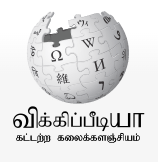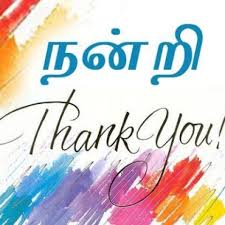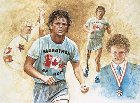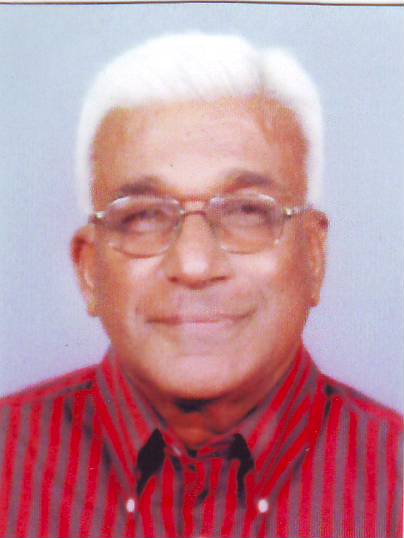 Uma Varatharajan is an avant-garde writer in Thamil hailing from the East living in Kalmunai, now in retirement from being the Senior Manager of Singer in that area. He writes at leisure and an aesthete at heart with a natural bent towards humour and a slight mischievousness in sarcasm. There are more than 250 creative writers – poets, dramatists, short story writers and novelists - in Thamil in this country. Among them a few writers write differently meaning writing fiction not confining them exclusively to write about ‘progressive’ themes such as social and political problems concerning caste and class differences, and the ethnic imbroglio. But in the writing of a handful of writers psychological and human condition takes primacy. Among the latter group of writers are Uma Varatharajan, A Saanthan, Somapala Ranjakumar, K Saddanathan, Kokila Mahendran and a few others who began writing such fiction in the1970s. One distinguishable quality in their writing was that they paid equal attention to the craft of the medium. This I found a miss in other social realism stories written by veteran writers though who were faithful in concentrating on the content than the structure and were rather careless about the form.
Uma Varatharajan is an avant-garde writer in Thamil hailing from the East living in Kalmunai, now in retirement from being the Senior Manager of Singer in that area. He writes at leisure and an aesthete at heart with a natural bent towards humour and a slight mischievousness in sarcasm. There are more than 250 creative writers – poets, dramatists, short story writers and novelists - in Thamil in this country. Among them a few writers write differently meaning writing fiction not confining them exclusively to write about ‘progressive’ themes such as social and political problems concerning caste and class differences, and the ethnic imbroglio. But in the writing of a handful of writers psychological and human condition takes primacy. Among the latter group of writers are Uma Varatharajan, A Saanthan, Somapala Ranjakumar, K Saddanathan, Kokila Mahendran and a few others who began writing such fiction in the1970s. One distinguishable quality in their writing was that they paid equal attention to the craft of the medium. This I found a miss in other social realism stories written by veteran writers though who were faithful in concentrating on the content than the structure and were rather careless about the form.
Uma Varatharajan’s father was from Karaikudi in Thamilnadu and mother from Kalmunai. This accounts for his handling the language in various ways that ‘makes it new’ as Ezra Pound said. Varatharajan writes short stories, poetry, and criticism. He is also knowledgeable in Thamil Cinema and a columnist writing film criticism. Currently he presents on the Eye channel a series of audio-visual program on Thamil film music of yester year with clippings and critical comments on the situations that necessitated in the picturization of the lyrics, music and singing. I enjoy this program “Aliyaatha Kolangal” (Indelible Patterns) very much. Varatharajan had also edited quality little magazines like “Vyukam” for instance. He has earlier brought about a collection of his short stories under the title “Yull Mana Yaathrai” (A Journey of Inner Searching) His stories have been published in Sinhala, German and English.
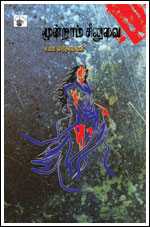
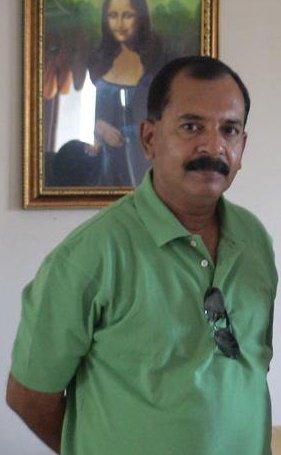 UmaVaratharajan’s maiden short novel is titled “Moontram Siluvai” (The Third Cross) alluding to the crucification of Jesus Christ. The protagonist had to bear the burden of blames and a sorrow encountered in his sexual life is the theme of the novel which sounds almost autobiographical. But the essential point to remember is that this is pure imaginative fiction as evidenced by some improbable happenings and fanciful situations in the story. The novel lends itself to various interpretations depending on the readers’ stances. Published by a reputed Indian concern-Kaalachuvadu Pathippakam”- in Naagarkoil, it has 126 pages. It has only well written 18 short chapters making the reading easy. The language employed is almost poetic and experimental in style showing the writer’s innovative interpretation of reality and fantasy. A notable writer in Thamil from Thamilnadu- Prabanjan- has writer a longish perceptive introduction to the novel relating it to ancient Thamil literary norms. It’s difficult to classify this novel under a specific category. It has a tragic hero in the name of Raghavan, a Hindu, 52 years old having a stormy lustful affair with a young woman 22 years younger to him. Her name is Julie, a not well to do Christian girl with a dubious background. She works for him in his Firm. The irony is that this middle-aged man is obsessed with sex even though he has married twice and had three daughters, one of whom was also married. Raghavan realizes his flaw belatedly and repents for his ’sin’ and as Jesus, and symbolically bears the responsibility for whatever he had done unwittingly. In truth he was not totally to be blamed because Julie and others had also contributed to his downfall. It was really a Fall from his stature due to rumours and exaggerations on the part of ‘others’ that led to a terrible end.
UmaVaratharajan’s maiden short novel is titled “Moontram Siluvai” (The Third Cross) alluding to the crucification of Jesus Christ. The protagonist had to bear the burden of blames and a sorrow encountered in his sexual life is the theme of the novel which sounds almost autobiographical. But the essential point to remember is that this is pure imaginative fiction as evidenced by some improbable happenings and fanciful situations in the story. The novel lends itself to various interpretations depending on the readers’ stances. Published by a reputed Indian concern-Kaalachuvadu Pathippakam”- in Naagarkoil, it has 126 pages. It has only well written 18 short chapters making the reading easy. The language employed is almost poetic and experimental in style showing the writer’s innovative interpretation of reality and fantasy. A notable writer in Thamil from Thamilnadu- Prabanjan- has writer a longish perceptive introduction to the novel relating it to ancient Thamil literary norms. It’s difficult to classify this novel under a specific category. It has a tragic hero in the name of Raghavan, a Hindu, 52 years old having a stormy lustful affair with a young woman 22 years younger to him. Her name is Julie, a not well to do Christian girl with a dubious background. She works for him in his Firm. The irony is that this middle-aged man is obsessed with sex even though he has married twice and had three daughters, one of whom was also married. Raghavan realizes his flaw belatedly and repents for his ’sin’ and as Jesus, and symbolically bears the responsibility for whatever he had done unwittingly. In truth he was not totally to be blamed because Julie and others had also contributed to his downfall. It was really a Fall from his stature due to rumours and exaggerations on the part of ‘others’ that led to a terrible end.
The first chapter is really a preamble written in the first person why this short novel came to be written. The second chapter is presumably about what happened previously and the aftermath of a ghost town during the ethnic wars in early part of the last decade. I was reminded of some scenes in the Greek epic “Odyssey” reading this chapter. Very powerful description. From now on the story is narrated intermittently in the first and third Person. Flashbacks and diary form and other techniques are employed to keep the reader engrossed in the novel.
I also remembered Nabakov’s “Lolita” where the author’s mastery of the English language fascinated me apart from the titillation it evoked in description of sex impulses. Varatharajan excels the ex act realistically and poetically.The third chapter is explicit in description of copulation but not pornographic. Another very talented Lankan born Australian writer, S.Ponnuthurai (Espo) had written explicitly some passages in his novel “Thee” written half a century ago.
I shall stop here in view of the restraint in space for the column. The novel would please readers that have an understanding towards real life and the philosophy behind this novel. It is a self-searching and discovery of a person who he really is and the treachery and cheating he had been subjected to by unscrupulous people.
The book has already been criticized in Thamil by people who failed to understand the fact that unbridled sex is sometimes damaging to persons of integrity. Personal relationship is very often marred in the yardsticks of societal contexts. But the criticism so far is basically not on the merit of the fiction but on the depiction of sex scenes in it. The critics failed to understand the protagonist’s agony in the backdrop of deceit by people involved in the story. Although it is reality that the writer portrays in his novel, it is imagined that the story is actually the personal life of the writer. But it is largely imaginative fantasy that the author brings in. And it may seemingly resemble the reality of the author’s personal life. That’s the façade that the writer puts on and succeeds through his craft in writing.
இந்த மின்-அஞ்சல் முகவரி spambots இடமிருந்து பாதுகாக்கப்படுகிறது. இதைப் பார்ப்பதற்குத் தாங்கள் JavaScript-ஐ இயலுமைப்படுத்த வேண்டும்.
Related link: http://www.umavaratharajan.com/index.html

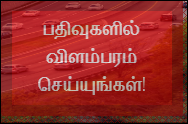
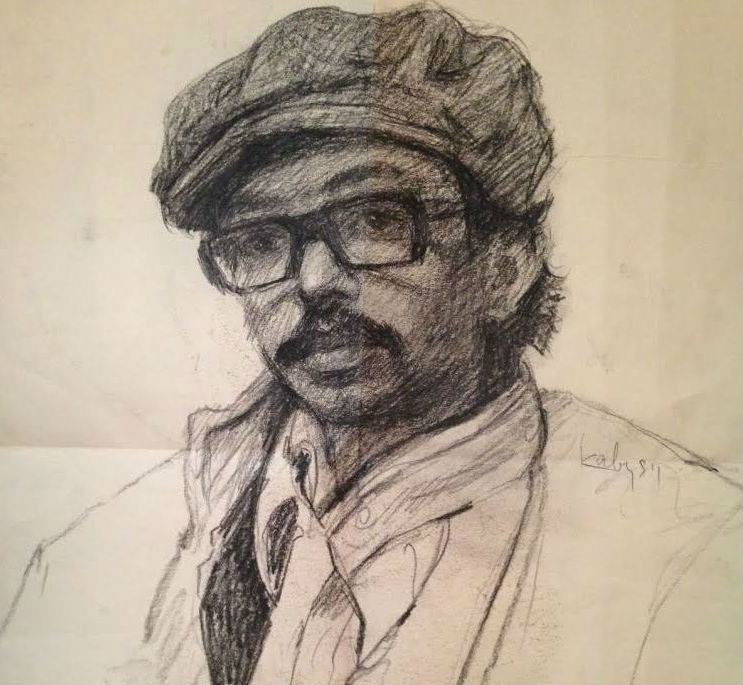
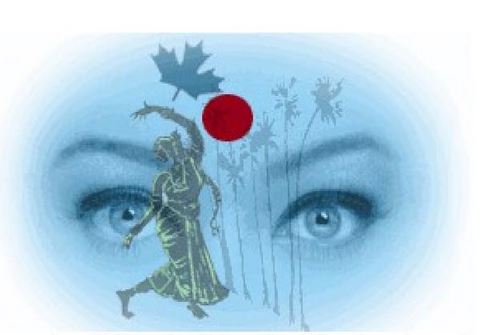 பதிவுகள். காம் மின்னூல் தொகுப்புகள்
பதிவுகள். காம் மின்னூல் தொகுப்புகள் 

